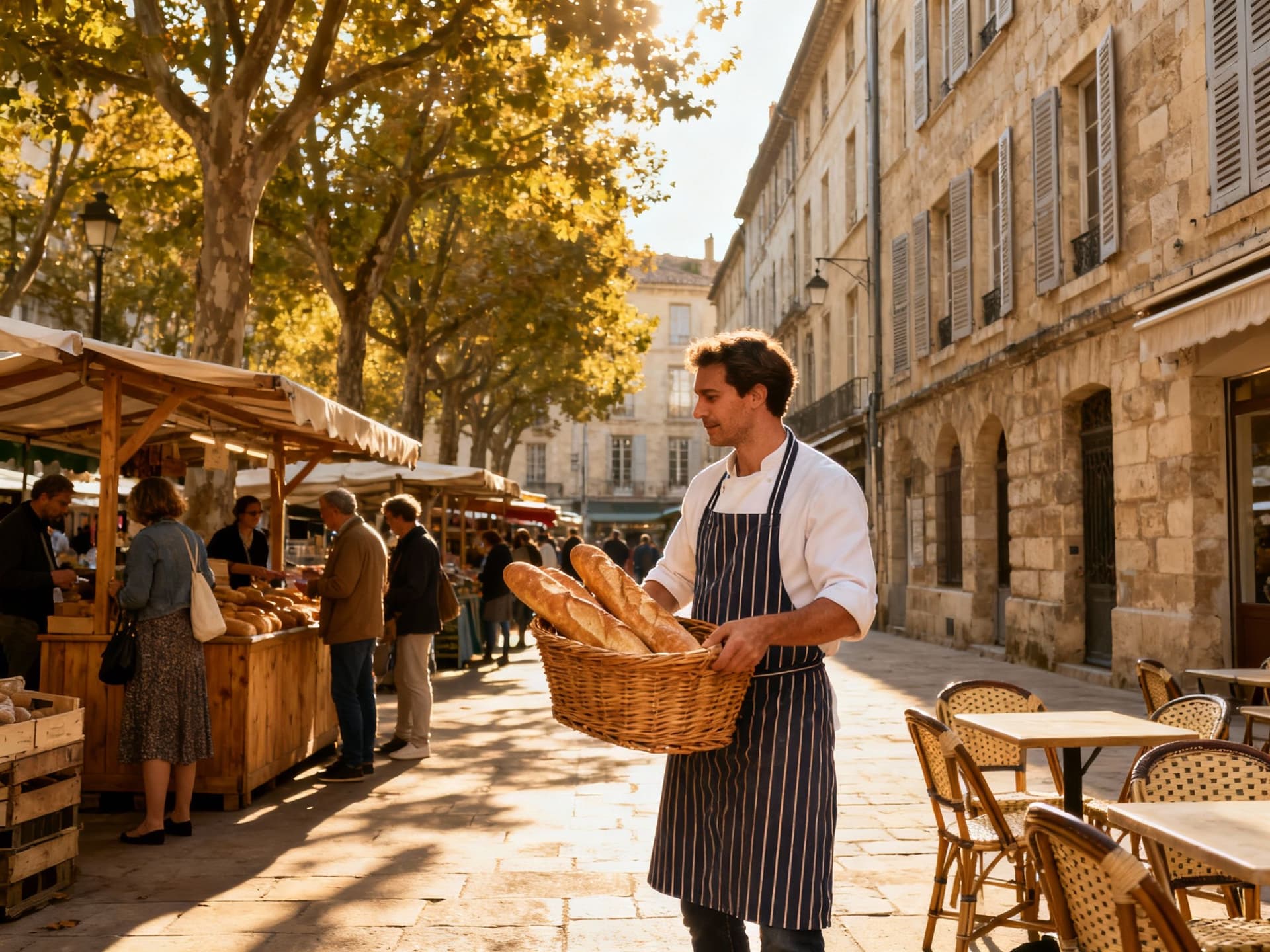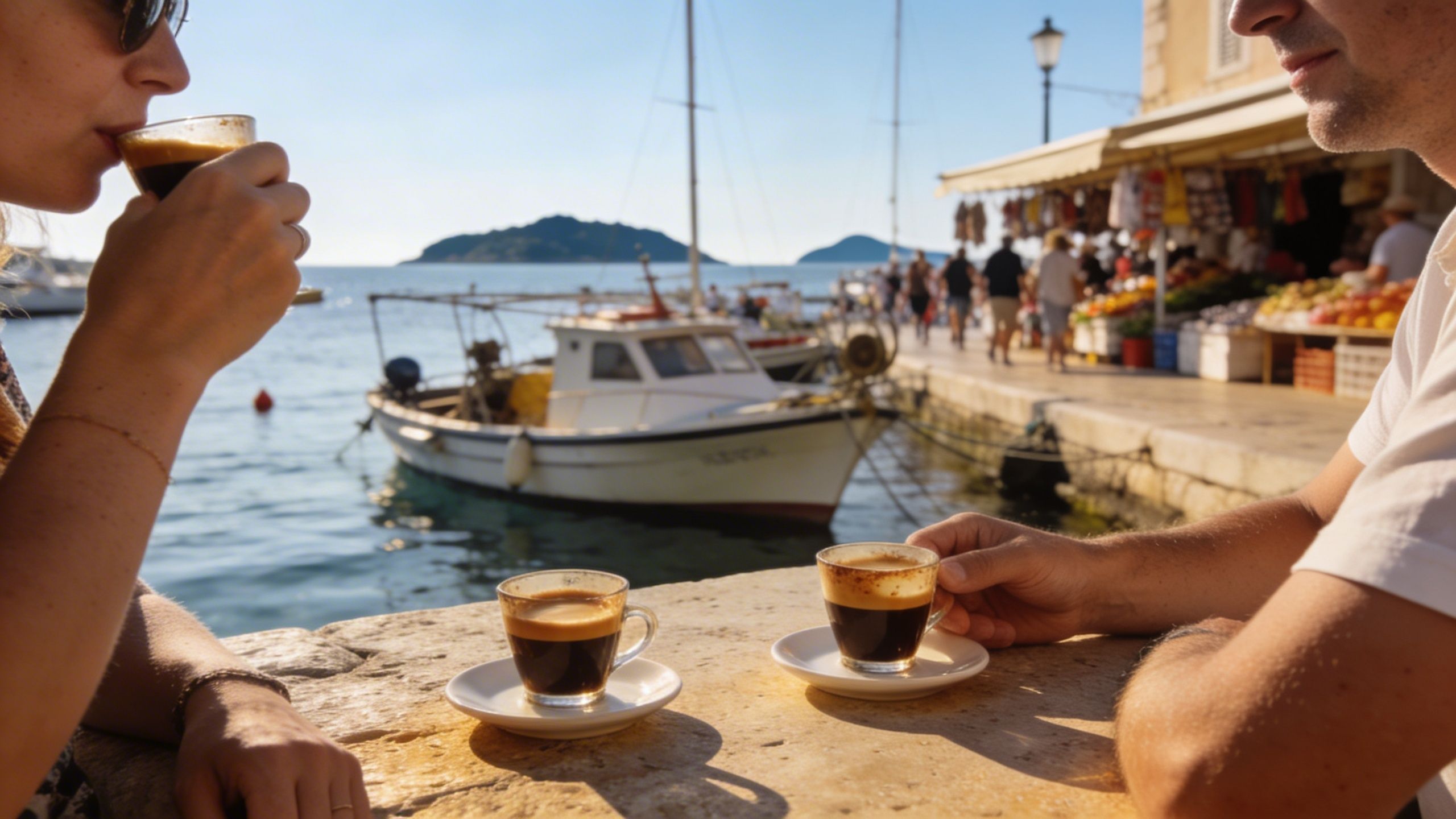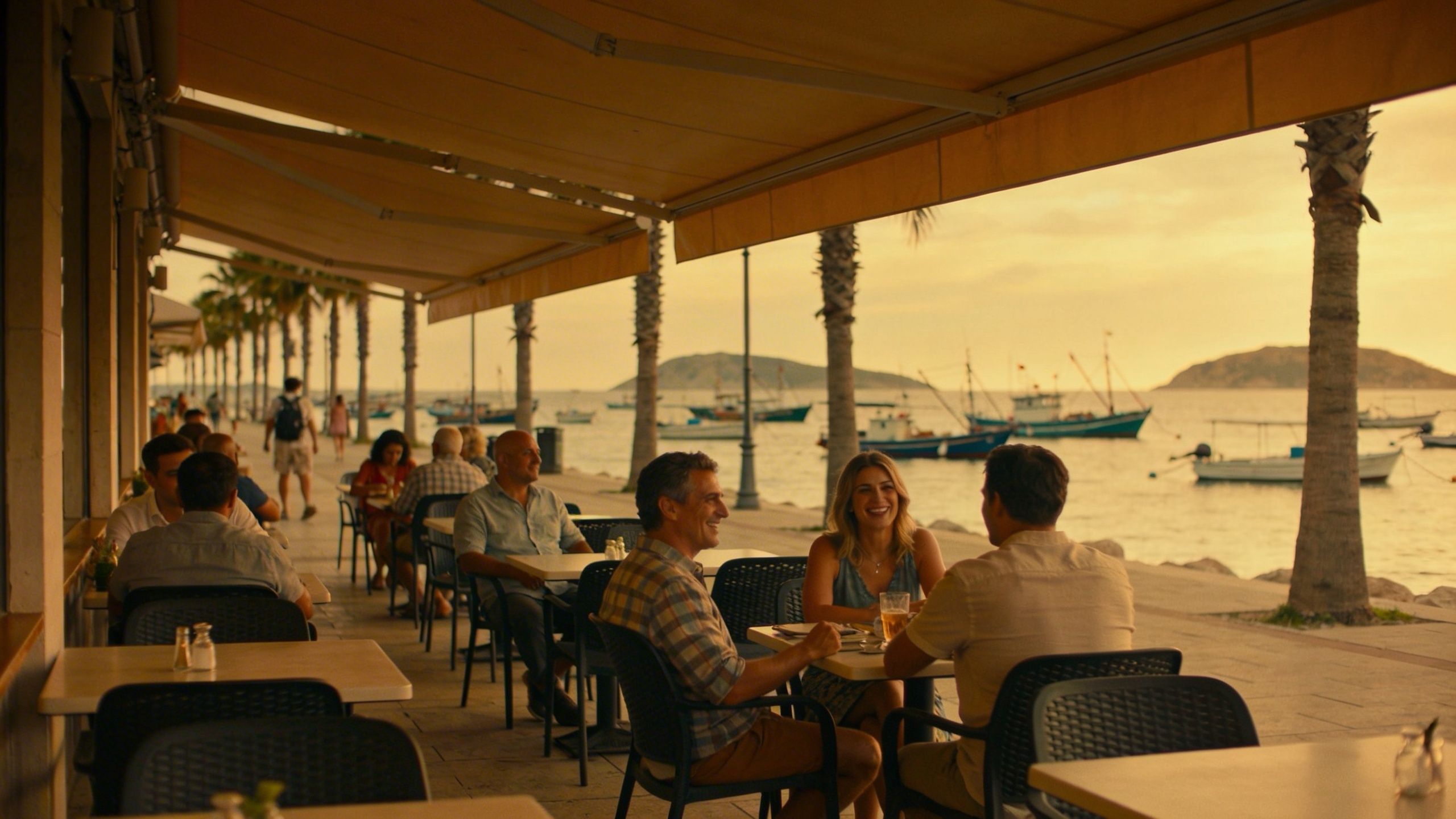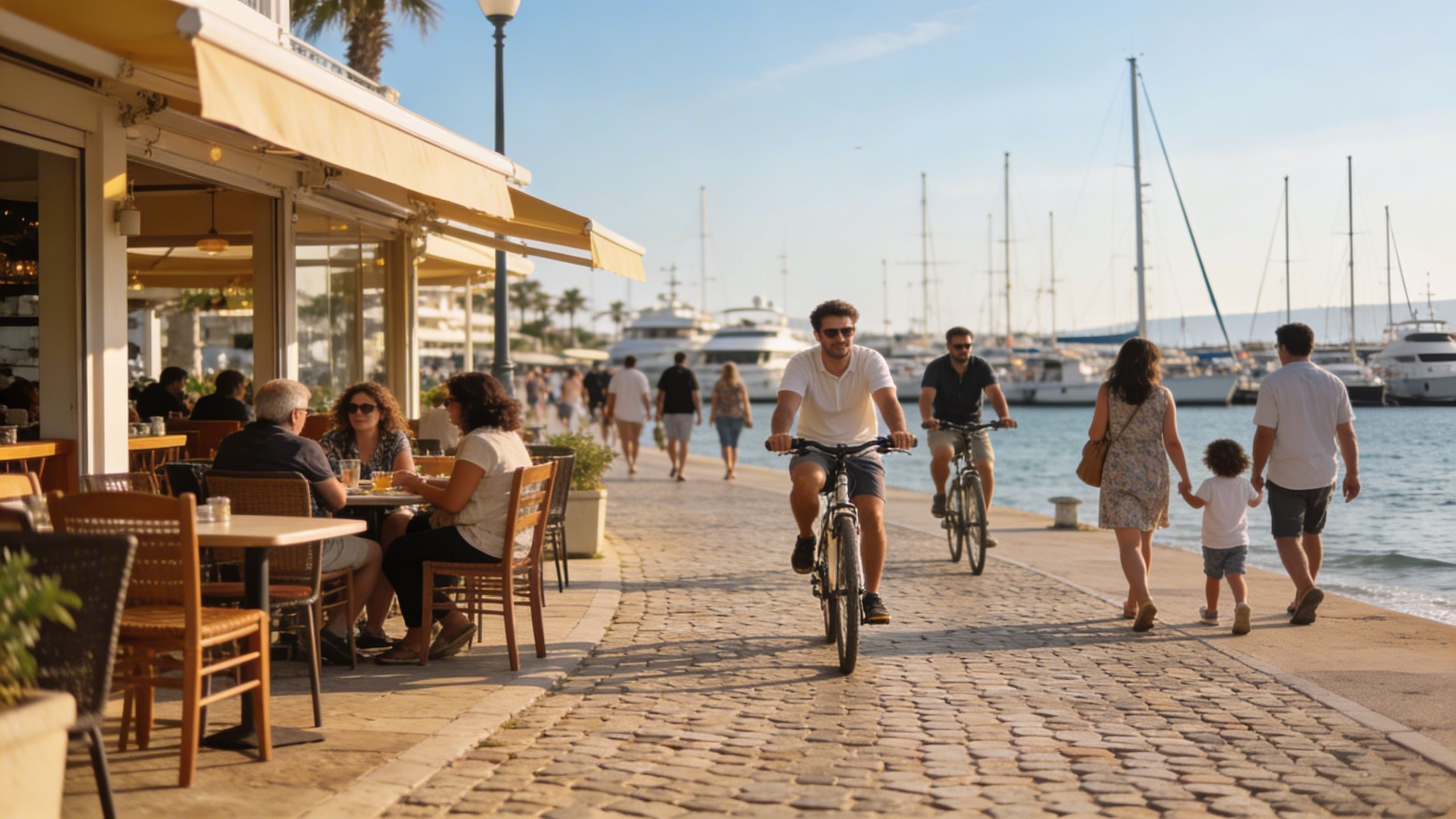France vs Portugal (Algarve & Lisbon): Taxes, Seasonality, Lifestyle
Compare lifestyle, seasonal realities and tax differences between France and Portugal (Algarve & Lisbon) to align daily life with long‑term property outcomes.
Imagine Saturdays in a French market: crates of apples, a baker handing off a warm baguette, and conversation that pauses only for espresso. That weekday rhythm—long coffee pauses, efficient bureaucracy, and Sunday family lunches—shapes not just daily pleasure but the type of property you buy. For buyers weighing Portugal’s Algarve and Lisbon against France, lifestyle draws you in while differences in tax, seasonality and transaction rules decide the long-term outcome. This piece pairs the feel of place with facts you can act on.
Living the French Life: rhythms and neighbourhood character

France is a mosaic: narrow lanes in Aix-en-Provence, the left-bank cafè culture of Paris, windswept beaches of Brittany and the sun-drenched terraces of Nice. Daily life leans toward lingering meals, well-run markets and public services that reward patience. Recent data show the national market returning to modest growth after a pause, a useful backdrop when imagining moving from sun-soaked Algarve towns to French towns where seasons strongly shape activity. Knowing where that pulse quickens—coast in summer, cities year-round—frames which property type fits your plans.
Paris, provincial towns and the Riviera: distinct neighbourhoods
Paris rewards proximity—arrondissements trade convenience for space—while Provence and the Côte d’Azur offer outdoor life and a slower pace. Coastal towns such as Cassis and Bandol shift social life outdoors from April to October; mountain and rural areas slow even more in winter. Many French buyers keep second homes inside the country, which sustains demand locally and affects supply dynamics where you might look for a holiday rental or a quiet transplant.
Food, markets and seasonal social life
Food culture structures weekdays and weekends: morning markets, long lunches in bistros, and summer fêtes. Picture walking into Marché des Enfants Rouges in Paris, joining a Sunday marché in Saint-Rémy-de-Provence, or eating freshly grilled sardines on a Breton quay. These rituals matter when you choose property: proximity to market squares, a compact kitchen for local produce, or a terrace large enough for summer dining are lifestyle choices that translate into property features and budgets.
- Neighbourhood and lifestyle highlights: - Marché des Enfants Rouges, Paris: daily market life and walkable amenities - Vieux-Nice: narrow streets, evening promenades and local bistros - Saint-Germain-en-Laye: family parks and train links into Paris - Cap Ferret: Atlantic beaches, oyster cabanes and a seasonal rhythm - Annecy/Haute‑Savoie: alpine access, outdoor sports, quieter winters
Making the move: practical considerations that follow the dream

Lifestyle preferences determine the property type, but practicalities—taxes, transaction costs, mortgage availability and residency rules—determine feasibility. France’s market shows modest price recovery in 2025, and transaction volumes vary regionally; that influences bargaining room and rental potential. Before committing, quantify acquisition costs, ongoing taxes and what rental income you can realistically expect in each season.
Property styles and how they map to daily life
Stone cottages and townhouses suit buyers who prize character and will accept renovation. Apartments in Paris and Lyon prioritise location and transport links. New-builds (less than five years) carry VAT (20%) with reduced registration duties (~0.7%), while older properties incur higher notary and registration fees. Which you choose affects maintenance, insurance and the ease of renting out seasonally.
Working with local experts to preserve lifestyle value
- Steps to match lifestyle and process: 1. Map 3–4 neighbourhoods against daily routines (markets, transport, healthcare). 2. Ask agencies for rental seasonality data and vacancy rates. 3. Confirm tax treatment for non-resident income with a French tax advisor. 4. Get a local notaire to estimate transfer taxes and mandatory fees. 5. Arrange a pre-approval from a French lender or confirm international mortgage terms.
Insider knowledge: what expats say and the legal/tax reality
Expats commonly report three surprises: seasonality of services in smaller towns, paperwork timelines (notaire-led transfers), and tax details on rental or sales gains. France taxes non-resident capital gains at 19% with potential social levies; deductions and exemptions vary by residency and treaty status. Understanding these rules up front avoids unwelcome tax exposure if you plan short-term rentals or a later resale.
Cultural integration and daily realities
Learning some French opens more doors than bureaucracy alone: neighbourhood shops, school contacts and local associations operate in French and reward effort. Social calendars are seasonal—village fêtes, outdoor concerts and weekly markets—so your social life will depend on where you place yourself on the map. Expat communities cluster around international schools, larger towns and coastal hotspots, so choose a location matched to how integrated you want to be.
Long-term lifestyle and property implications
Think five years ahead: will you rent during absences, move permanently, or treat the property as an asset? Coastal and Riviera properties often generate strong short-term rental income in summer but face winter vacancy; city apartments offer steadier year-round yields. Local planning rules and conservation zones can limit renovations—budget for that when choosing older properties rich in charm but constrained in adaptability.
- Practical red flags and checks: - Confirm EU/EEA treaty implications for social charges and capital gains. - Ask for actual occupancy and utility costs for past 2–3 years. - Check planning restrictions if you intend to extend or add a pool. - Verify broadband speeds and transport links for remote work. - Insist on a property diagnostic pack (DPE, asbestos, lead where relevant).
France and Portugal (Algarve & Lisbon) each offer compelling, yet different, lifestyles: France for diverse seasons, cultural density and stable long-term values; Portugal for milder winters, lower running costs and often higher short-term rental demand. The right choice starts with a clear list of what you want to feel daily—market mornings, short walks to cafés, or year-round beach weather—and then aligns that with tax planning, agency support and realistic yield expectations.
Next steps: prioritise neighbourhood visits, request recent transaction comps from local notaires, and obtain tax scenarios for your residency status. A practical first move is a short scouting trip timed to the season you expect to live there—experience a market day, an evening at a local bistro and a weekday service interaction. Then engage a bilingual agent and a notaire to convert that feeling into a safeguarded transaction.
Danish relocation specialist who has lived in Barcelona since 2016. Helps families move abroad with onboarding, schooling, and local services.


